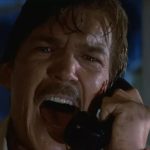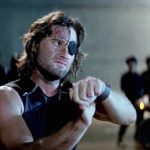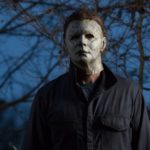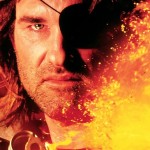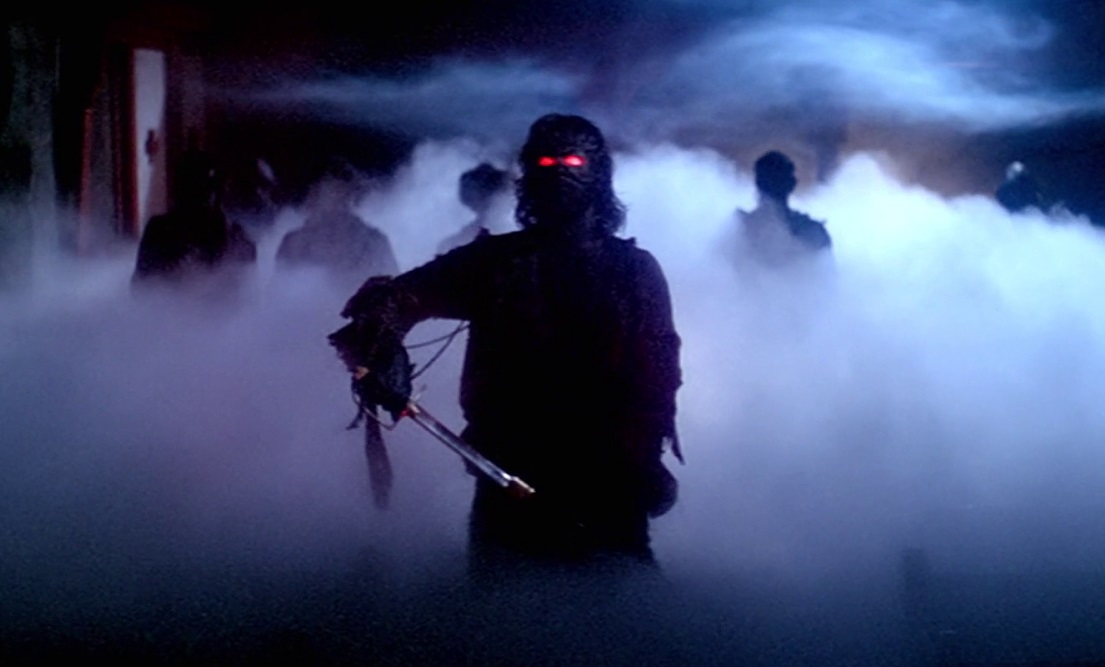
The thing that works the most in John Carpenter's The Fog is also the thing that makes it feel so old-fashioned when watching today. It's a movie about isolation, set in the present day when it was made but which we now look back on as a time before the Internet, before cellphones, before thousands of people where merely a few touchscreen presses away. The characters of The Fog, residents of a small Californian coastal town who only seem to connect to each other through the shared listening of a late-night DJ over the radio, feel isolated from each other even before the movie's titular glowing haze rolls in to wreak havoc on their lives.
The Fog is the okay-ish movie Carpenter squeezed in between his run of masterpieces. Halloween preceded it, and clearly the director hoped to recapture that film's overbearing sense of dread within the context of The Fog's more overt ghost story. That didn't quite happen, which is maybe why Carpenter immediately broadened his scope to tackle larger, more science-fiction-y themes in Escape from New York and The Thing, the two movies that came right after. So, yeah … you glance at those titles and you can see how The Fog might get lost in the shuffle when discussing Carpenter's oeuvre today.
The film opens with a spooky campfire tale that simultaneously lays out the movie's backstory and establishes its mission statement of being a ghost story in the most classic of sense. As the quaint town of Antonio Bay prepares to celebrate its 100th anniversary, a mysterious fog encroaches on the shore. In town, windows shatter and lights burst with no warning. On a small fishing boat out on the water, spectral figures carrying large fishing hooks materialize to murder three drunks out on a pleasure cruise. Something ominous is making its presence known, and it may be tied to the sinking of a ship that occurred a century ago. The plot slowly unravels itself, and we learn the ghosts (which actually look more like water-logged zombies) were seafaring lepers who were hoping to establish a colony but were purposefully murdered by Antonio's Bays six founders. They've now returned to claim six lives in retribution. It's basically a slasher setup, with the added novelty of the zombie-ghosts having a specific number of victims in mind.
The first half of The Fog is an effectively moody chiller, and maybe the film could have compared favorably to Carpenter's classics had the second half properly capitalized on the set-up. Unfortunately, the further into its run time you get, the more the disappointments start to pile up. At first, we see the zombie-ghosts merely as silhouetted figures. (They might as well be crew members standing in front of a spotlight.) Teasing them in a Jaws-like fashion has the viewer expecting glorious reveals later on that never actually come. So their leader turns out to have glowing red eyes. Uh, okay … that's neat in a lo-fi '80s horror movie kind of way … I guess? We do get a super-quick glance at the side of one ghoul's worm-ridden face, but the movie really needed to provide a bigger, gorier payoff considering how close to the vest Carpenter holds his cards early on.
I also wish the "countdown from six" angle was played up more. As it stands, we get a mysterious piece of driftwood that briefly flashes "6 must die" and a victim's corpse springing back to life to carve the number "3" — the horror equivalent of an ESPN scoring update — on an autopsy-room floor. Carpenter could have wrung even more tension out of the countdown had he used the third act to pit some of the townsfolk against each other, as they try to avoid being one of the final corpses.
One thing that carries no disappointment is the cast, which looking back on it now feels like an all-star team of Carpenter-approved actors. Jamie Lee Curtis and Nancy Loomis both graduate from Halloween to more adult roles here. The great Tom Atkins is featured one year before he'd appear in Escape from New York and two years before he'd star in the Carpenter-produced Halloween III. And Carpenter's ex-wife, Adrienne Barbeau, makes her big-screen debut as the disc jockey. (She'd later join Atkins in New York and become a bit of a horror-film mainstay.) Everyone is fun to watch, although Barbeau does the most with her character, effortlessly flipping back and forth between a silky-voiced DJ trying to calmly update her community and a more traditional, freaked-out horror-movie damsel coming to grips with the supernatural occurrences plaguing the town.
This is a Carpenter film, so you probably also want to know about the score. It's good, although the main theme (which is fantastic) isn't played nearly often enough. (Twice, by my count, I believe? I could have listened to it — or variations on it — at least two more times over the course of the movie!)
So, taken as an interesting but less mandatory part of Carpenter filmography, The Fog is fine. Those who prefer the straight horror of Halloween would likely get more out of it than those who gravitate toward the filmmaker's more sci-fi-tinged flicks. I'm also taking They Live and Prince of Darkness over this. But even in his lesser works, Carpenter is an absolute master at crafting an eerie tone. The Fog succeeds on that front, even if it fails to properly escalate the sense of impending doom the director establishes in its early goings.

